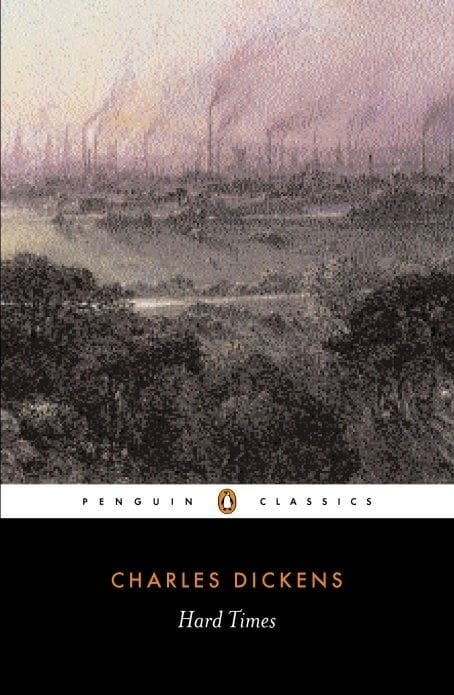
Book Review Summary: Hard Times
Introduction
"Hard Times" is a novel written by Charles Dickens in 1854. It is a polemical tract that critiques the contemporary utilitarian philosophy, particularly the idea that facts and practicality are the only important aspects of life. However, the novel is more than just a polemical work; it is a tragic story of a family and their struggles with the harsh realities of industrialization and societal expectations. In this article, we will explore the book's reception among readers and analyze its themes, characters, and literary merits.
About Charles Dickens
Charles Dickens (1812-1870) is a renowned author known for his contributions to the Victorian era's literature. He wrote numerous novels, including "Oliver Twist," "Great Expectations," and "A Tale of Two Cities." Dickens' works are characterized by their realism, humor, and social criticism. Despite facing criticism from some writers for his lack of psychological depth and excessive sentimentality, his works have enduring popularity and continue to inspire adaptations in various artistic forms.
Analysis of Views
- Polemical Tract: Many readers praise the novel for its polemical nature, particularly its critique of utilitarianism and the emphasis on facts and practicality over imagination and emotions. They appreciate the author's ability to use fiction as a platform to express his views on society and morality.
- Tragic Story: The tragic story of Louisa Gradgrind and her father's journey towards reconsidering his beliefs is a significant aspect of the book. Readers find it compelling and emotionally engaging. They appreciate the character development and the exploration of human nature and society's impact on individuals.
- Social Commentary: The novel serves as a social commentary on various aspects of Victorian England, including industrialization, class stratification, and education. Readers appreciate the author's ability to capture the harsh realities of life during that time and use fiction to convey his messages about society's ills.
- Character Development: The characters in the novel are well-developed and memorable. Readers find them relatable and enjoy exploring their motivations, struggles, and growth throughout the story. They appreciate the complexity of the characters and how they contribute to the overall narrative.
- Literary Merits: Dickens' writing style, prose, and characterization are widely praised by readers. They appreciate his ability to create vivid descriptions, engaging dialogue, and memorable scenes that bring the story to life. The novel's literary merits are often cited as a reason for its enduring popularity.
Reasons for Recommendation
- Tragic Story: The tragic story of Louisa Gradgrind and her family resonates with readers, making it a compelling read. The exploration of human nature, societal pressures, and the consequences of rigid beliefs make it a thought-provoking and emotionally engaging novel.
- Social Commentary: The novel's social commentary on Victorian England provides readers with insight into the historical context of the time. It offers a critical perspective on industrialization, class stratification, and education, making it relevant to contemporary readers as well.
- Character Development: The well-developed characters add depth and complexity to the story. Readers appreciate the nuanced portrayal of individuals struggling with their beliefs, relationships, and societal expectations, making it a relatable and engaging read.
- Literary Merits: Charles Dickens' writing style, prose, and characterization are widely regarded as literary geniuses. His ability to create vivid descriptions, engaging dialogue, and memorable scenes adds to the overall enjoyment of the novel. The literary merits make it a timeless classic that continues to captivate readers today.
Reasons for Not Recommendation
- Polemical Nature: Some readers find the polemical nature of the novel overwhelming or heavy-handed. They feel that it detracts from the storytelling aspect of the book and makes it more focused on expressing the author's views than creating an engaging narrative.
- Predictability: Some readers feel that the story becomes predictable towards the end, leading to a sense of anticlimax or disappointment. They find that certain plot twists or revelations are anticipated from earlier in the book, diminishing the overall impact of the narrative.
- Lack of Psychological Depth: Some readers criticize the lack of psychological depth in certain characters or events within the novel. They feel that certain aspects of the story lack emotional depth or complexity, making them less engaging or impactful.
Conclusion
"Hard Times" by Charles Dickens is a novel that combines polemical commentary with a tragic story of individuals struggling with societal expectations and personal beliefs. It offers a critical perspective on Victorian England's industrialization, class stratification, and education system. The well-developed characters and Dickens' literary merits make it a compelling read for many readers. However, some may find it overwhelmingly polemical or predictable towards the end. Overall, "Hard Times" is a thought-provoking novel that continues to captivate readers with its social commentary and literary prowess.